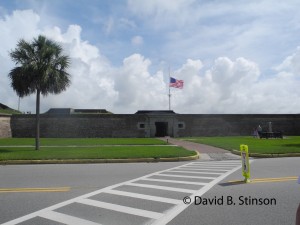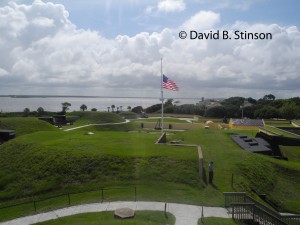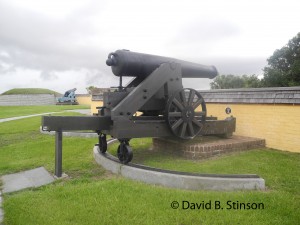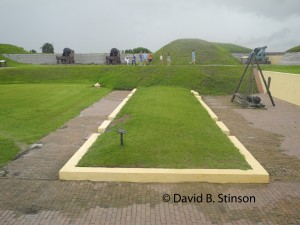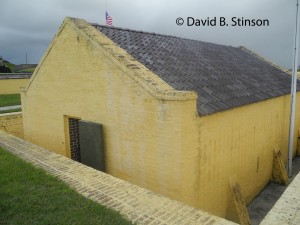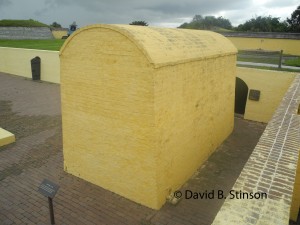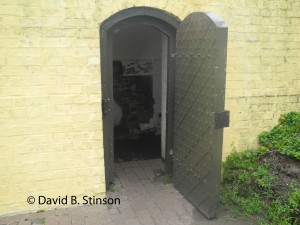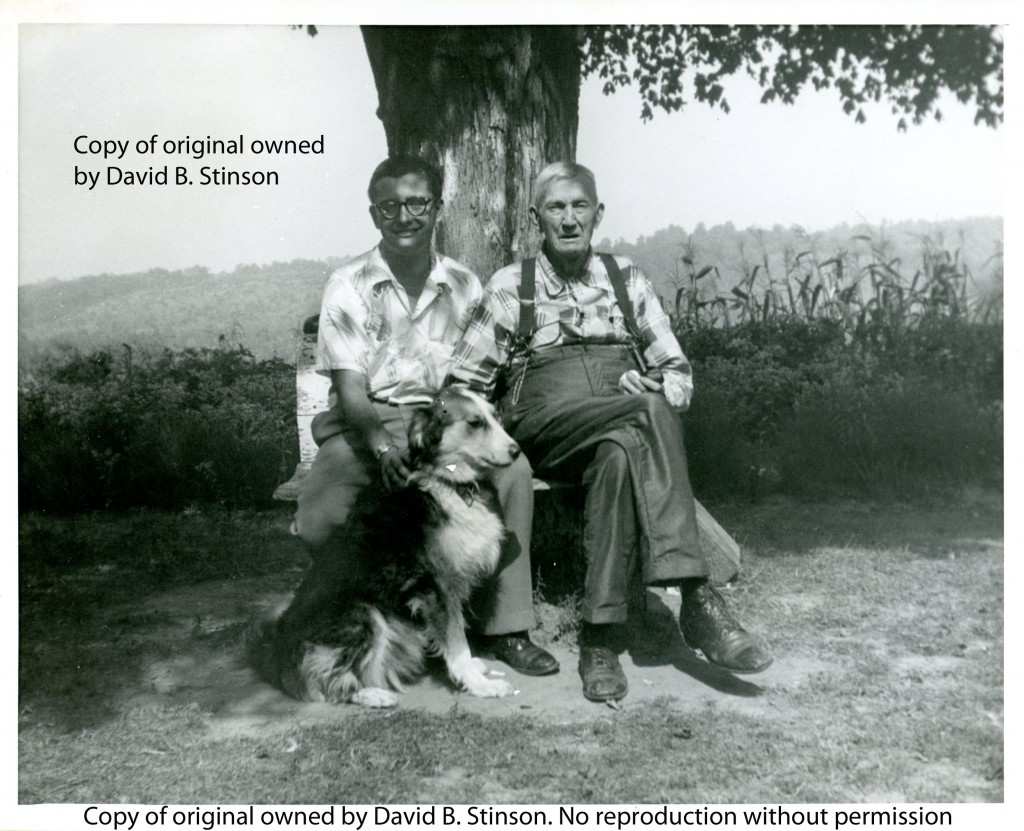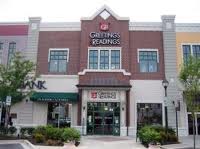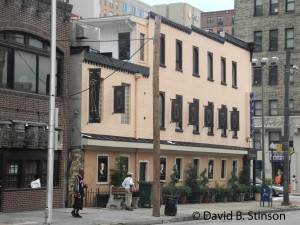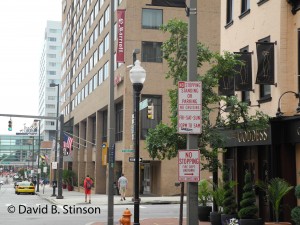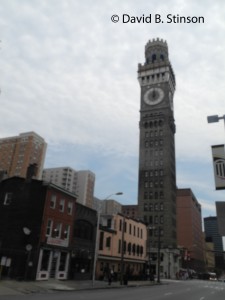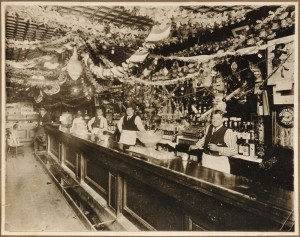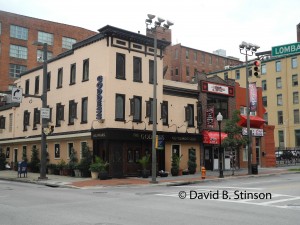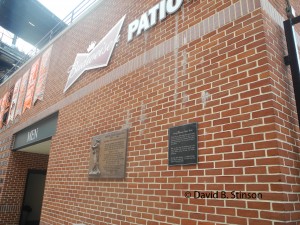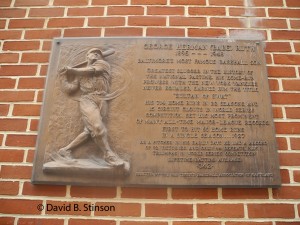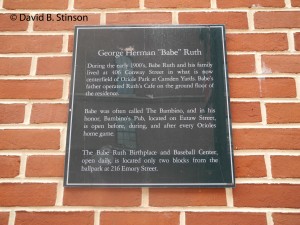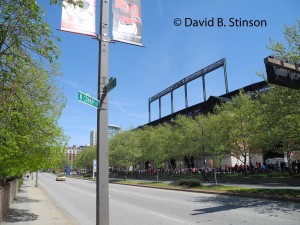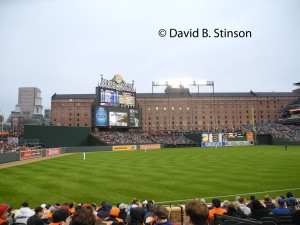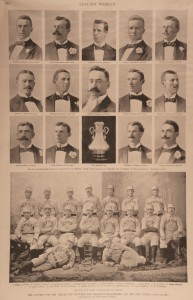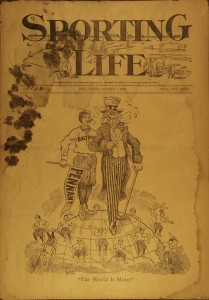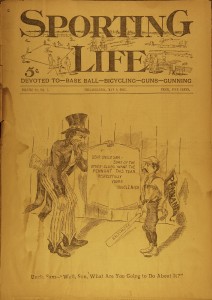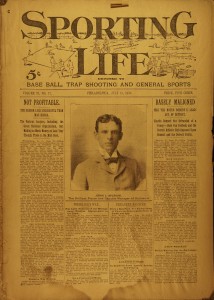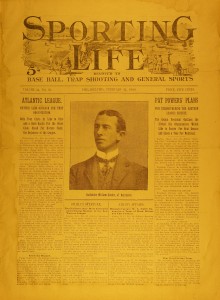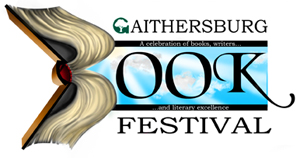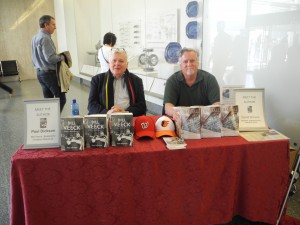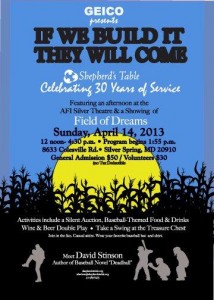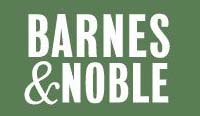Babe Ruth spent the majority of his formative years as a ward of St. Mary’s Industrial School for Boys, an orphanage and reform school run by the Archdiocese of Baltimore. His parents signed him over to the Xaverian Brothers out of desperation when he was just eight or nine years old. In 1914, Ruth left St. Mary’s to begin his professional baseball career, playing first for the International League Baltimore Orioles, before being sold to the Boston Red Sox organization. He made his major league debut in July of that year and ended the season with the International League Providence Grays.
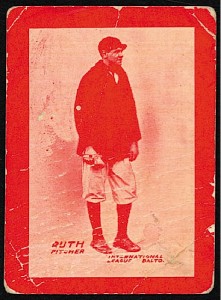
1914 Baltimore News Babe Ruth Rookie Card
While in Boston, Ruth fell in love with Helen Woodford, a waitress he had met at a local diner. Once the baseball season was over, Ruth returned to Baltimore with Woodford. Ruth asked and received permission from his father to get married. On October 14, 1914, Ruth and Woodford were married at St. Paul’s Catholic Church in Ellicott City, Maryland, located about 12 miles west of downtown Baltimore.
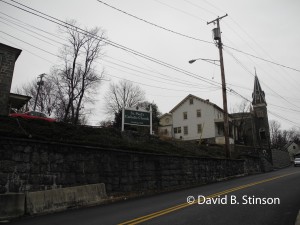
St. Paul’s Catholic Church, Located at 3755 St. Paul Street in Ellicott City, Maryland
Ellicott City was named after brothers Andrew and John Ellicott, who founded Ellicott Mills along the banks of the Patapsco River in the 1770’s. In the 1800’s the town grew to be a prosperous mill town, one of the largest in the state.
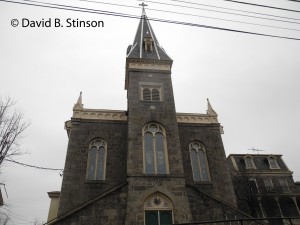
View of St. Paul’s Catholic Church from St. Paul Street
In 1838, the Archdiocese of Baltimore constructed St. Paul’s Church on land purchased from the Ellicott family. At the time of its construction, St. Paul’s was the only Catholic Church located in Maryland between Baltimore and Frederick. St. Paul’s is perched on a hill overlooking Main Street. A tall, grey granite steeple at the front of the building offers entry to the church on three sides. Ornamental rose windows adorn the steeple above the three separate entrances, each with a set of green painted doors.
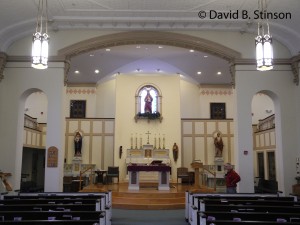
Interior of St. Paul’s Catholic Church, Where Babe Ruth Married his First Wife Helen
Although much of the church building on the outside appears as it did at the time Ruth was married there, an addition to the front of the church expanded the area housing the altar and the tabernacle.
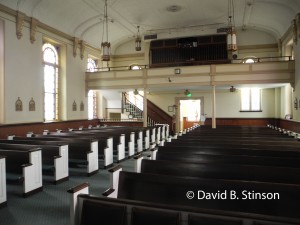
St. Paul’s Catholic Church Nave.
During their wedding ceremony, Babe and Helen Ruth stood just in front of the first row of pews.
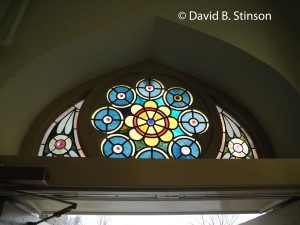
Detail of a Rose Window Over One of the Front Doors of St. Paul’s Church
The couple was married in a simple ceremony by Father Thomas Dolan. The only people in attendance other than the priest and the young couple were two members of the Church, one being Father Dolan’s sister.
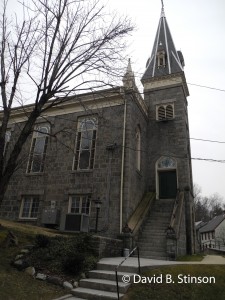
Side Entrance to St. Paul’s Church from the East
After the wedding, the newlyweds lived for the winter in Baltimore, above a tavern operated by Babe Ruth’s father on Conway Street, which now is center field at Oriole Park (not to be confused with a second Ruth bar (now known as the Goddess Gentlemen’s Club)).
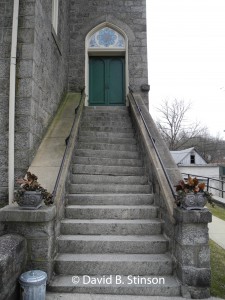
Staircase on Which the Fictional Byron Bennett Was Sitting When He Saw Babe and Helen Ruth Exit St. Paul’s Church
In my book Deadball, A Metaphysical Baseball Novel, the protagonist, Byron Bennett, recounts an episode that happened to him when, as a boy, he paid a visit to St. Paul’s Church:
“Byron and (his dog) Miss Tree climbed up the 20 worn, granite steps – Byron counted each one – which led from the sidewalk to the church’s east entrance, and took seats on the top step. While Byron was watching a train approach the B&O Railroad station that bordered the city’s east side, the church doors burst open behind him and a young couple appeared, arm in arm, smiling and laughing.”
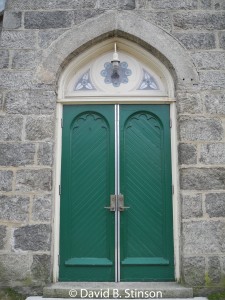
Doors From Babe and Helen Ruth Would Have Exited St. Paul’s Church
“The sound of a pipe organ playing Mendelssohn’s “Wedding March” emanated from inside the church. The commotion startled Miss Tree and she began barking. Byron scooted to the side of the step, pulling Miss Tree along with him, and put his hands around her mouth in a failed attempt to silence her.”
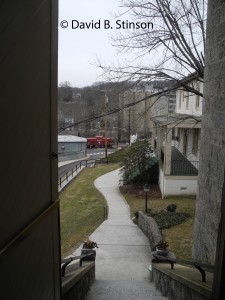
Entrance to St. Paul’s Catholic Church Looking West Toward B&O Railroad Station
“Byron looked up at the couple as they passed. The groom towered over him, dwarfing his small frame. With his thick lips, wide nose, and olive complexion, the man looked like a young Babe Ruth. . . . Byron waved to the couple as they descended the steps. The groom turned around and gave him a wink. Miss Tree continued barking. In the small parking lot at the base of the church steps there appeared a Packard S-38 touring car with thick white-wall tires and an open roof. Byron watched as the happy couple slid into the back seat and the car roared out of the parking lot, disappearing as if evaporating into the air before it reached Main Street.”
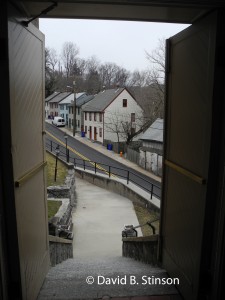
West Entrance to St. Paul’s Church
“After staring for a moment in disbelief, he stood up, still confused as to what he had seen, and looked down at Miss Tree, who appeared equally confused. ‘Did you see that?’ Byron asked his attentive companion. Byron walked over to the church entrance, pulling several times on its worn, cylinder-shaped brass door handles, but they were locked. He knocked, but no one answered. Abandoning the doors facing east, Byron ran down the 20 granite steps, past the entrance to the church basement, around to the other side of the steeple, and up another 21 granite steps – he counted each one – to the doors facing west. Miss Tree followed suit, barking all the way. Byron pulled on the handles, but those doors were locked as well.”
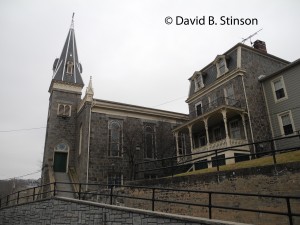
St. Paul’s Catholic Church and Rectory
If you are a fan of the game and you find yourself in or near Ellicott City, be sure to stop by St. Paul’s Church to see where Babe Ruth got married. Although there is no guarantee that you too will encounter the Babe during your visit, you will get a sense of the man, for his legend lives large in Ellicott City, just as it does in Baltimore, Boston, and New York. And, in case you were wondering about Byron’s dog, his name is a tribute to the day Miss Tree, a stray, first showed up at Byron’s house. Byron’s parents tried without success to locate the dog’s owner and, unable to solve the mystery, named her as such and let Byron keep her. Byron, then a small boy, pronounced her name with two, not three, syllables.

